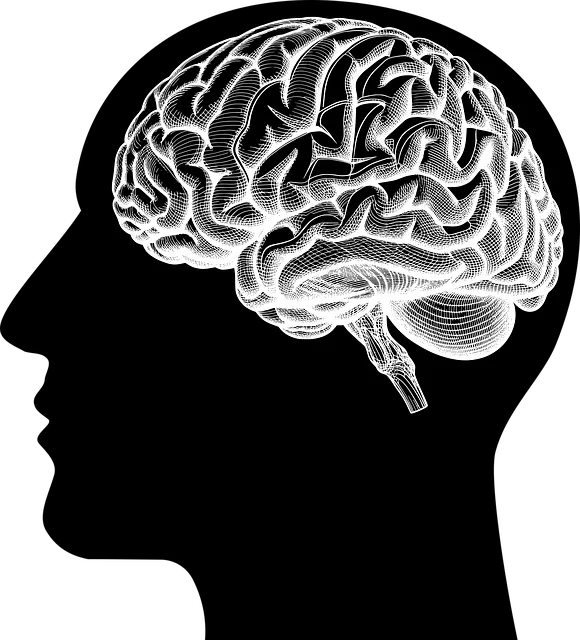Anxiety, a natural stress response, becomes problematic when persistent and excessive, impacting daily life. Identified by intense fear, worry, and physical symptoms, it has multifaceted causes including genetic, brain chemistry, traumatic, and medical factors. Kaiser Permanente mental health Arvada emphasizes empathy and understanding, advocating for management techniques like mindfulness, meditation, therapy, and CBT. These approaches, backed by research, challenge negative thought patterns and equip individuals with coping tools. Mindfulness practices, physical activity, balanced nutrition, and support systems foster resilience and emotional well-being, reducing stigma and encouraging early intervention through initiatives like the Mental Wellness Podcast Series and Healthcare Provider Cultural Competency Training.
Anxiety is a common yet complex condition, and managing it effectively can greatly improve quality of life. This article explores various techniques inspired by Kaiser Permanente mental health Arvada’s expertise. We’ll delve into understanding anxiety, from identifying symptoms and causes to exploring evidence-based methods like Cognitive Behavioral Therapy (CBT). Additionally, we’ll uncover mindfulness practices, relaxation techniques, and lifestyle adjustments, emphasizing the role of support systems in fostering resilience against anxiety.
- Understanding Anxiety: Symptoms and Causes as per Kaiser Permanente mental health Arvada
- Cognitive Behavioral Therapy (CBT): A Popular Approach for Effective Anxiety Management
- Mindfulness and Relaxation Techniques to Combat Anxiety
- Lifestyle Changes and Support Systems: Building a Resilient Framework for Overcoming Anxiety
Understanding Anxiety: Symptoms and Causes as per Kaiser Permanente mental health Arvada

Anxiety is a natural response to stress, but when it becomes excessive and persistent, it can significantly impact daily life. According to Kaiser Permanente mental health Arvada, anxiety disorders are characterized by feelings of fear, worry, or unease that are intense, frequent, and hard to control. Symptoms may include rapid heartbeat, sweating, trembling, difficulty concentrating, and restlessness. Understanding these signs is crucial for identifying when help is needed.
The causes of anxiety are multifaceted, as suggested by Kaiser Permanente mental health Arvada. They can stem from genetic predisposition, brain chemistry imbalances, traumatic life events, chronic stress, or underlying medical conditions. Building empathy for those dealing with anxiety involves recognizing that it’s not a sign of weakness but a complex response to various factors. Promotion of emotional well-being through techniques like mindfulness, meditation, and therapy has proven effective in managing anxiety. Additionally, mental illness stigma reduction efforts play a vital role in encouraging individuals to seek support without fear of judgment.
Cognitive Behavioral Therapy (CBT): A Popular Approach for Effective Anxiety Management

Cognitive Behavioral Therapy (CBT) has emerged as a widely recognized and effective approach to anxiety management, backed by numerous studies and recommendations from healthcare providers like Kaiser Permanente mental health Arvada. This evidence-based therapy focuses on identifying and modifying negative thought patterns and behaviors that contribute to anxiety disorders. By challenging unhelpful thoughts and replacing them with more realistic and balanced perspectives, CBT empowers individuals to manage their symptoms and improve overall mental wellness.
The popularity of CBT stems from its ability to equip people with practical tools for coping with anxiety in their daily lives. This includes various techniques such as mindfulness exercises, relaxation strategies, and problem-solving skills, which are often incorporated into the therapy process. Moreover, the structured nature of CBT allows for a tailored treatment plan designed around each individual’s specific needs, making it accessible and effective for those seeking to enhance their mental health through evidence-based practices, as highlighted in the Mental Wellness Podcast Series Production and Healthcare Provider Cultural Competency Training initiatives.
Mindfulness and Relaxation Techniques to Combat Anxiety

Anxiety can be a overwhelming experience, but various mindfulness and relaxation techniques offer effective coping strategies. Practices such as meditation, deep breathing exercises, and yoga are backed by Kaiser Permanente mental health Arvada experts as powerful tools to manage anxiety symptoms. These methods encourage individuals to focus on the present moment, calming the mind and reducing stress responses.
By integrating these practices into daily routines, folks can enhance their burnout prevention and build resilience against anxiety triggers. Furthermore, mindfulness techniques contribute to self-esteem improvement by fostering a sense of control and self-awareness, helping individuals navigate challenging situations with greater ease. For immediate crisis intervention guidance, these strategies can serve as a solid foundation, offering temporary relief until professional support is sought.
Lifestyle Changes and Support Systems: Building a Resilient Framework for Overcoming Anxiety

Anxiety management starts with lifestyle changes that cultivate resilience. Incorporating regular physical activity, mindfulness practices like meditation or deep breathing exercises, and maintaining a balanced diet can significantly reduce anxiety levels. These habits are supported by Kaiser Permanente mental health Arvada, emphasizing holistic well-being. A strong support system is equally vital; connecting with friends, family, or support groups provides emotional reinforcement during challenging times. Building these pillars of resilience empowers individuals to confront anxiety effectively.
Moreover, fostering inner strength through self-care and personal growth initiatives enhances one’s ability to navigate anxious moments. Public Awareness Campaigns Development can play a crucial role in normalizing conversations about mental health, reducing stigma, and encouraging early intervention. By combining lifestyle adjustments, supportive networks, and Inner Strength Development, individuals can build robust frameworks to overcome anxiety and lead more fulfilling lives.
In light of the above discussions, anxiety management is a multifaceted process that involves understanding symptoms and causes, employing evidence-based techniques like Cognitive Behavioral Therapy (CBT), adopting mindfulness and relaxation practices, and fostering supportive lifestyle changes. Following the insights from Kaiser Permanente mental health Arvada, these strategies offer a comprehensive approach to overcoming anxiety. By integrating CBT, mindfulness, and lifestyle modifications, individuals can build resilience and effectively manage their anxiety, leading to improved overall well-being.






